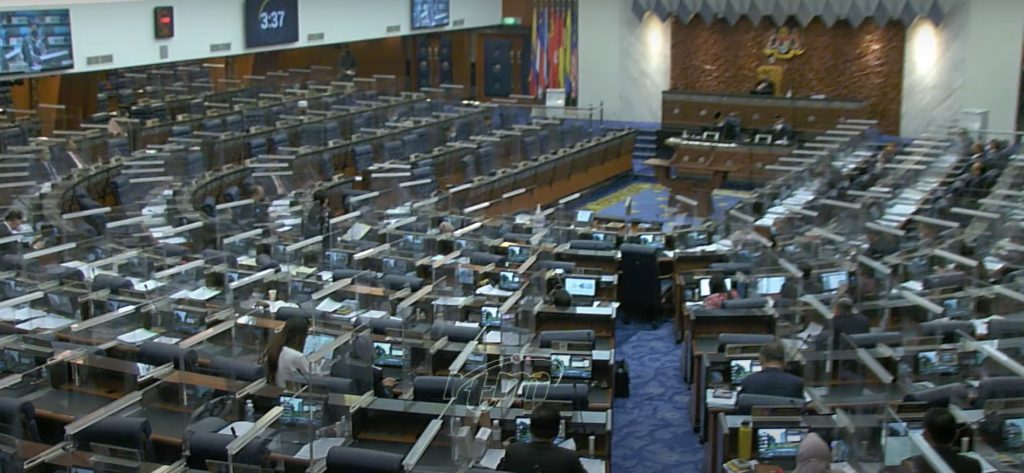
KUALA LUMPUR, Sept 15 – The ninth Prime Minister, Datuk Seri Ismail Sabri Yaakob, would have been defeated in his first vote on the Deputy Speakership in Parliament yesterday if not for the confidence-supply-reform Memorandum of Understanding signed between the Prime Minister and Pakatan Harapan a day earlier, says DAP veteran Lim Kit Siang.
But with the CSR MOU, a new political landscape had started, and the deputy speaker election was postponed to the next Parliament meeting when the Federal Constitution would be amended to create a third deputy speaker post for the opposition.
“It’s the first example of the co-operation between the Government and the Pakatan Harapan parties so that the priority is on ending the longest Covid-19 wave in the world which caused two million Covid-19 cases and some 22,000 Covid-19 deaths in Malaysia instead of spending the next 10 to 18 months on political intrigues, plots and counterplots, even on toppling Ismail Sabri as the ninth Prime Minister, though any new 10th Prime Minister in such circumstances will not be Anwar Ibrahim,” the Member Parliament for Iskandar Puteri said in a statement today.
If Malaysians, regardless of race, religion, region or politics can put aside their differences and unite single-mindedly to end the Covid-19 pandemic and prepare the country for economic, social and national recovery, there is a chance that Malaysia can succeed.
“If we continue to allow our differences to take precedence over the Covid-19 pandemic, then Malaysia is inexorably hurtling towards a failed state. We do not want to be a kleptocracy or a kakistocracy.”
Kit Siang also commended the move towards an anti-hopping bill.
“Thirty-three years ago, on March 21, 1978, I moved a Private Member’s Bill in Parliament for an anti-hopping law to deter political corruption and to ensure a cleaner political atmosphere. I did not succeed.
“This is what I said in Parliament 33 years ago:
“Nothing disgusts the Malaysian public more than to see MPs or State Assemblymen elected on one party’s ticket and then betray the Party and the people’s trust by switching parties. This makes them very little different from con-men. Such practices debase politics, and strengthen the general impression that ‘politics is dirty’, when it is the dirty people who get into politics to make politics dirty.
“The defection of MPs or State Assemblymen from parties on whose ticket they got elected is most undesirable and unethical, because they are elected not because of their personal qualities, but because of the Party they represent. Such practices also permit elected politicians to be bought and sold as if they are on the market place.
“If an elected MP resigns or is expelled from the Party on whose ticket he was originally elected, then he should resign his seat and cause a by-election to be held. If the resignation and expulsion is over a matter of political principle which has the support of the people, then the MP or State Assemblymen concerned should have no qualms about getting re-elected.”